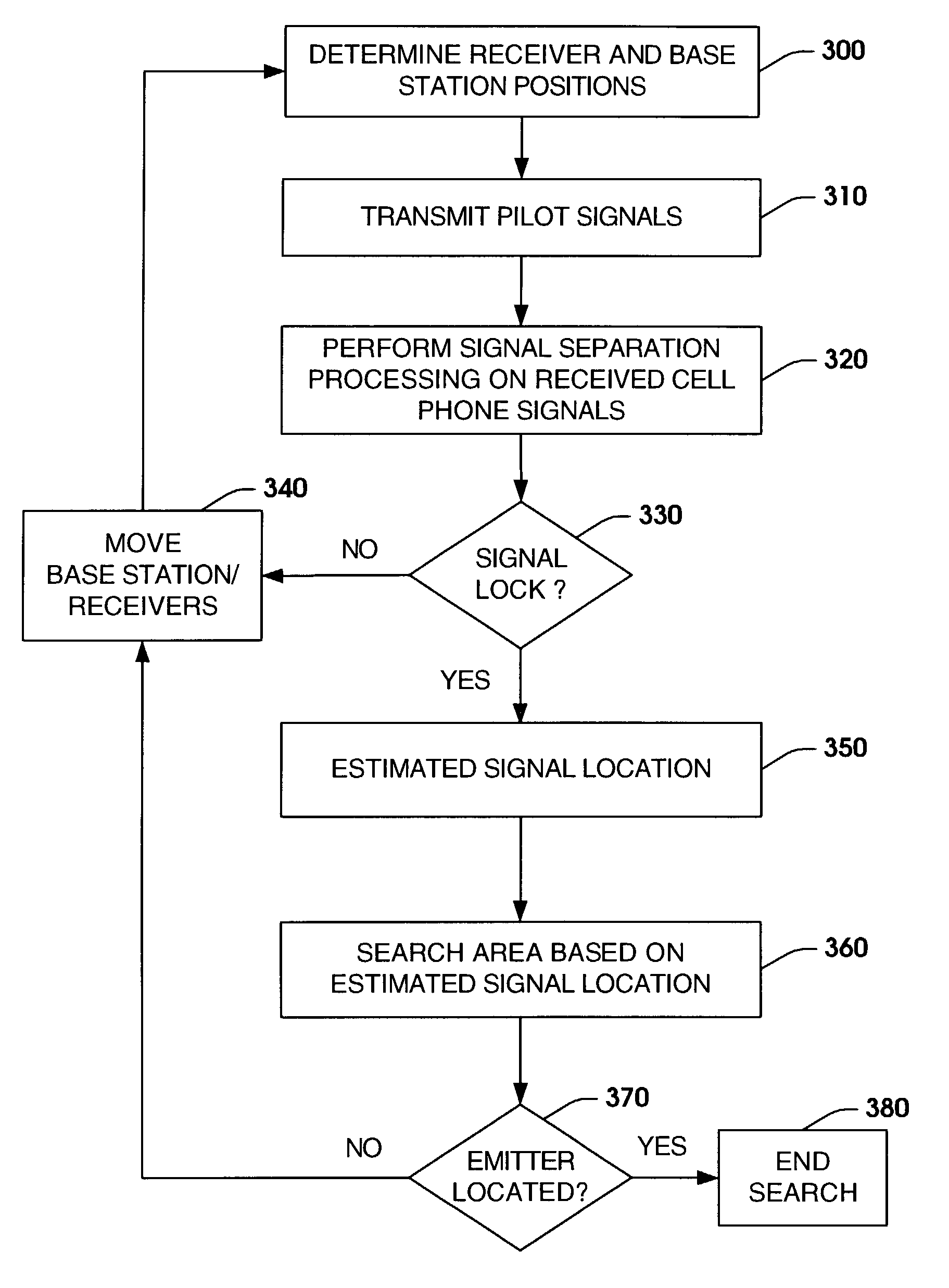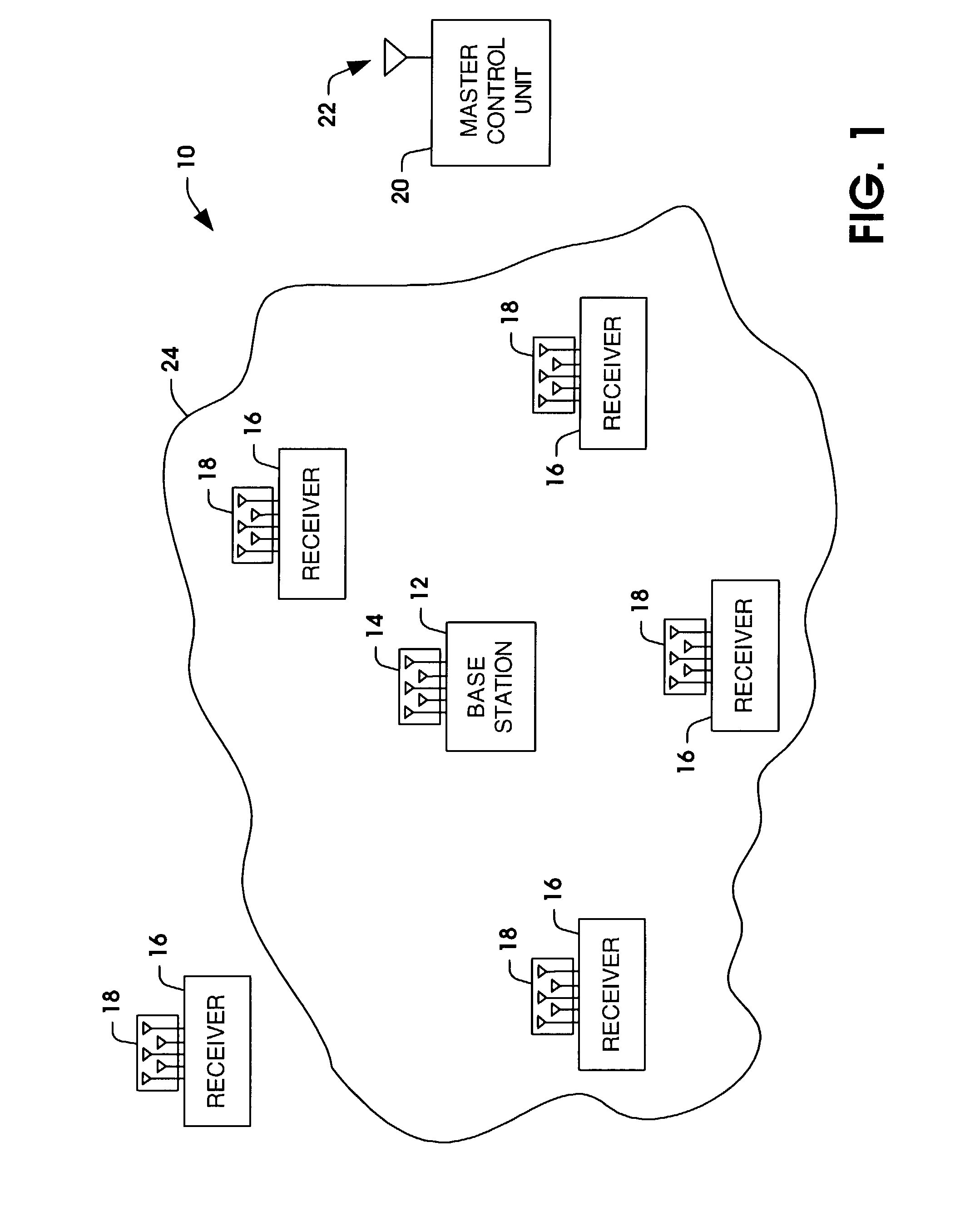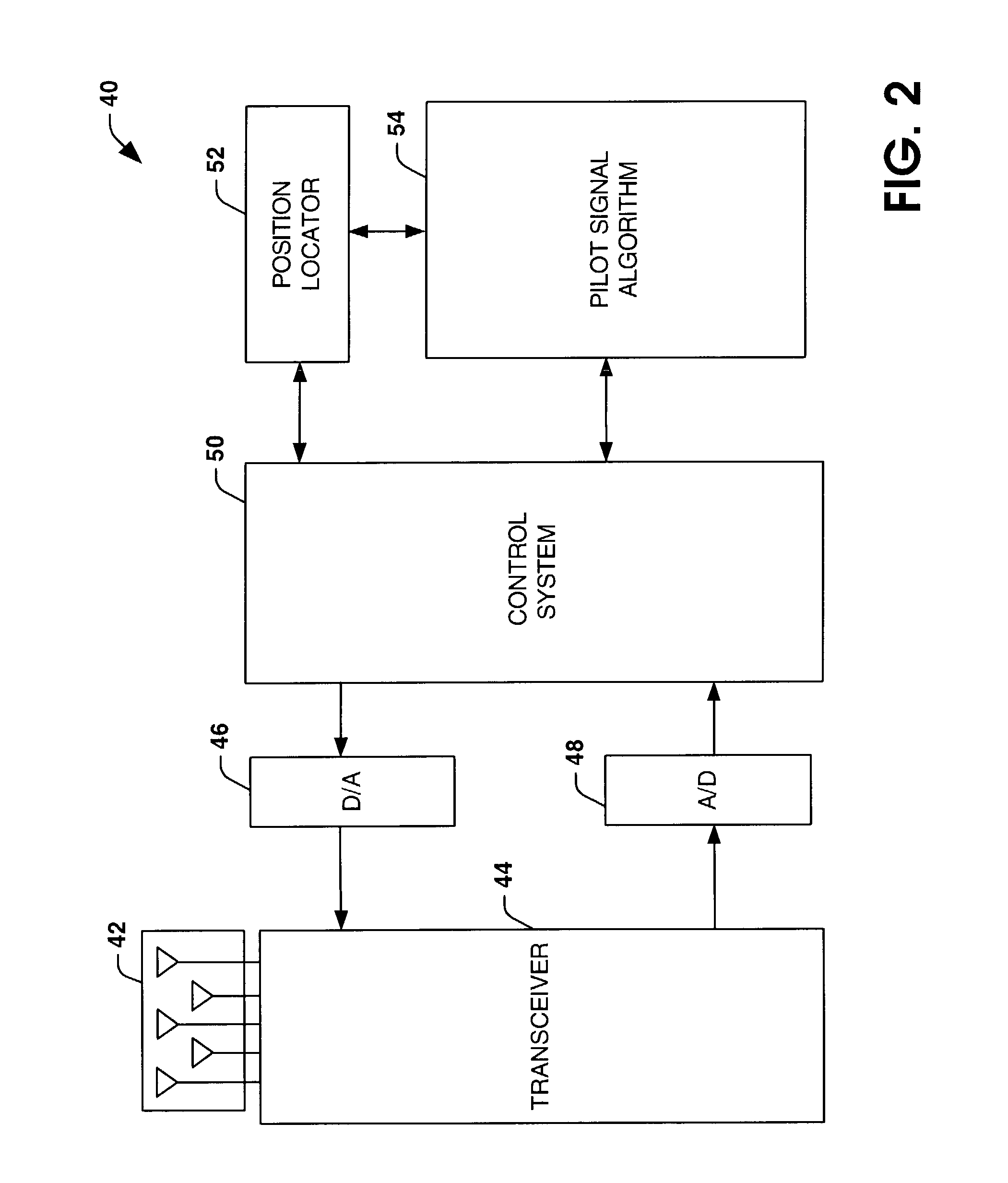Finding cell phones in rubble and related situations
a technology of radio transmission and cell phone, applied in the field of communication, can solve the problems of insufficient precision of e-911 system techniques, inability to give the location of cell phone within the building (e.g., within the room), and inability to locate cell phone with high precision, so as to achieve the effect of reducing transmission tim
- Summary
- Abstract
- Description
- Claims
- Application Information
AI Technical Summary
Benefits of technology
Problems solved by technology
Method used
Image
Examples
Embodiment Construction
[0017]The present invention provides for systems and methods for locating a radio transmission signal in a rescue operation. Receivers are located around the rescue area to monitor for transmission signals from the one or more radio transmission emitter devices (e.g., cell phones). A calibration routine is executed to determine geographical position information of the receivers. A base station pilot signal is employed for connecting with the radio transmission devices located in a rescue area. A signal separation routine extracts desired transmission signals from other signals coexisting on similar frequency bands and interfering with the desired transmission signals. A direction finder algorithm can be employed to determine at each receiver location the direction from which one or more of the desired transmission signals are being transmitted. The direction data, raw signal data and receiver position data are provided to a master controller to determine an estimated location of the...
PUM
 Login to View More
Login to View More Abstract
Description
Claims
Application Information
 Login to View More
Login to View More - R&D
- Intellectual Property
- Life Sciences
- Materials
- Tech Scout
- Unparalleled Data Quality
- Higher Quality Content
- 60% Fewer Hallucinations
Browse by: Latest US Patents, China's latest patents, Technical Efficacy Thesaurus, Application Domain, Technology Topic, Popular Technical Reports.
© 2025 PatSnap. All rights reserved.Legal|Privacy policy|Modern Slavery Act Transparency Statement|Sitemap|About US| Contact US: help@patsnap.com



